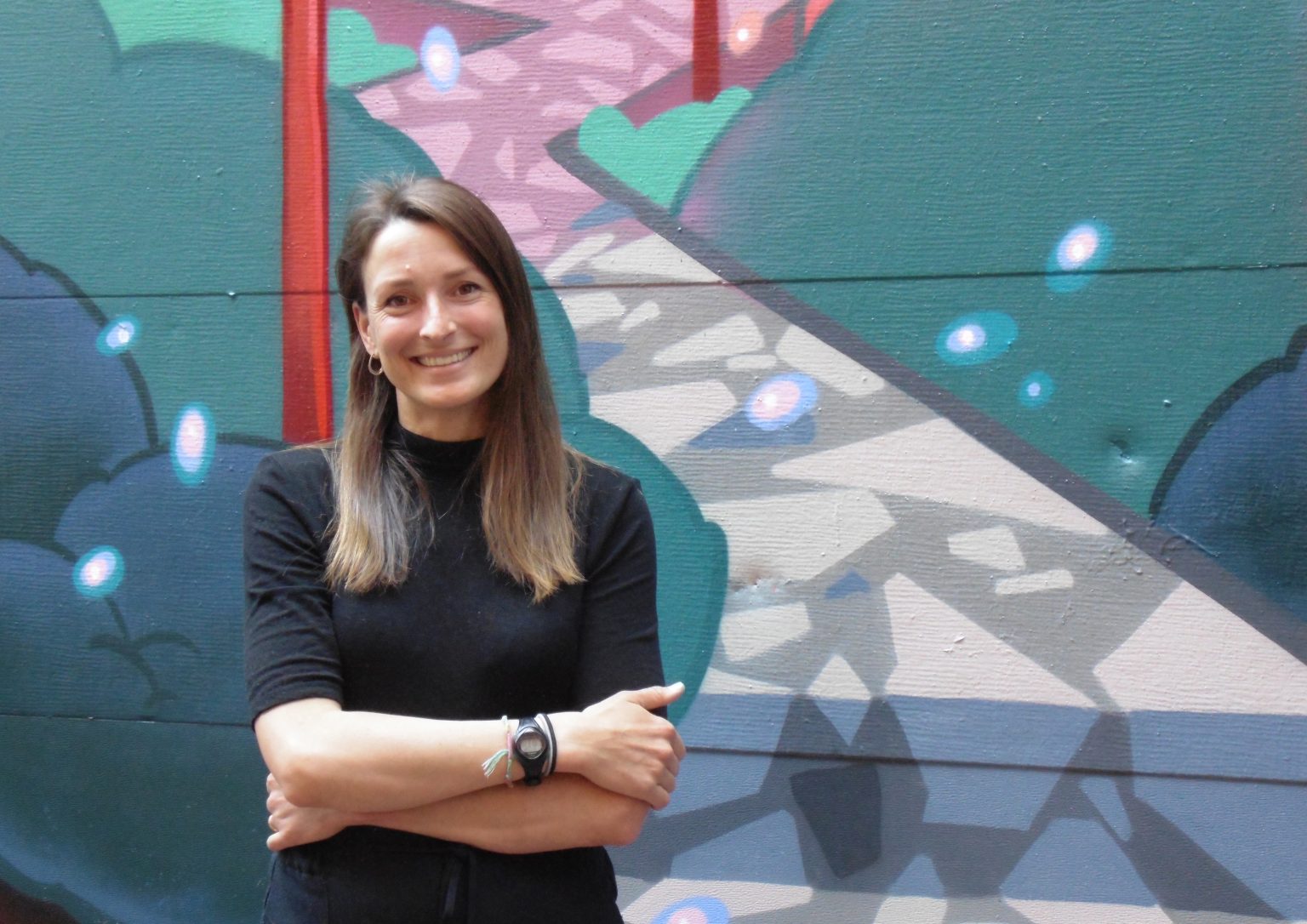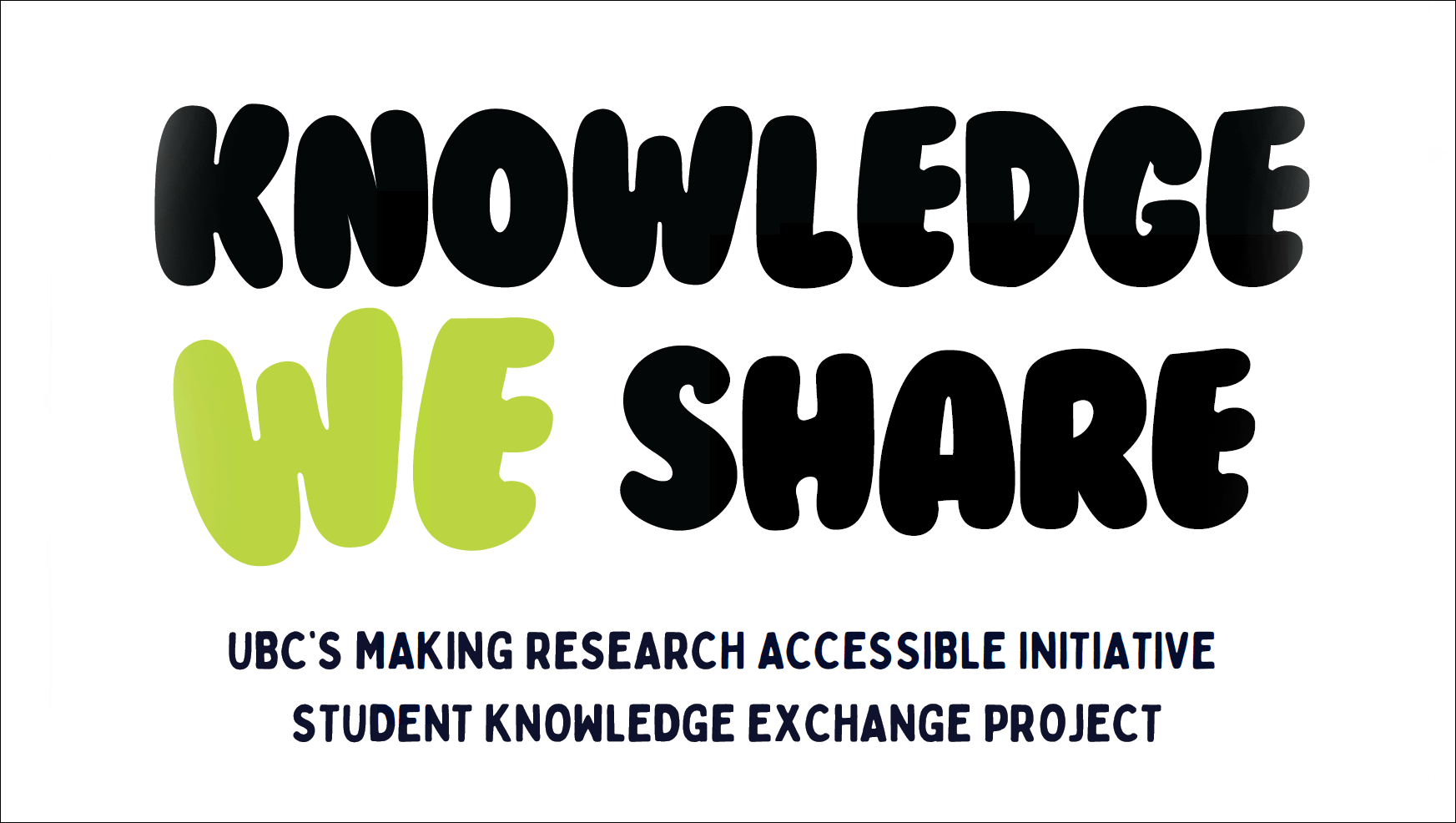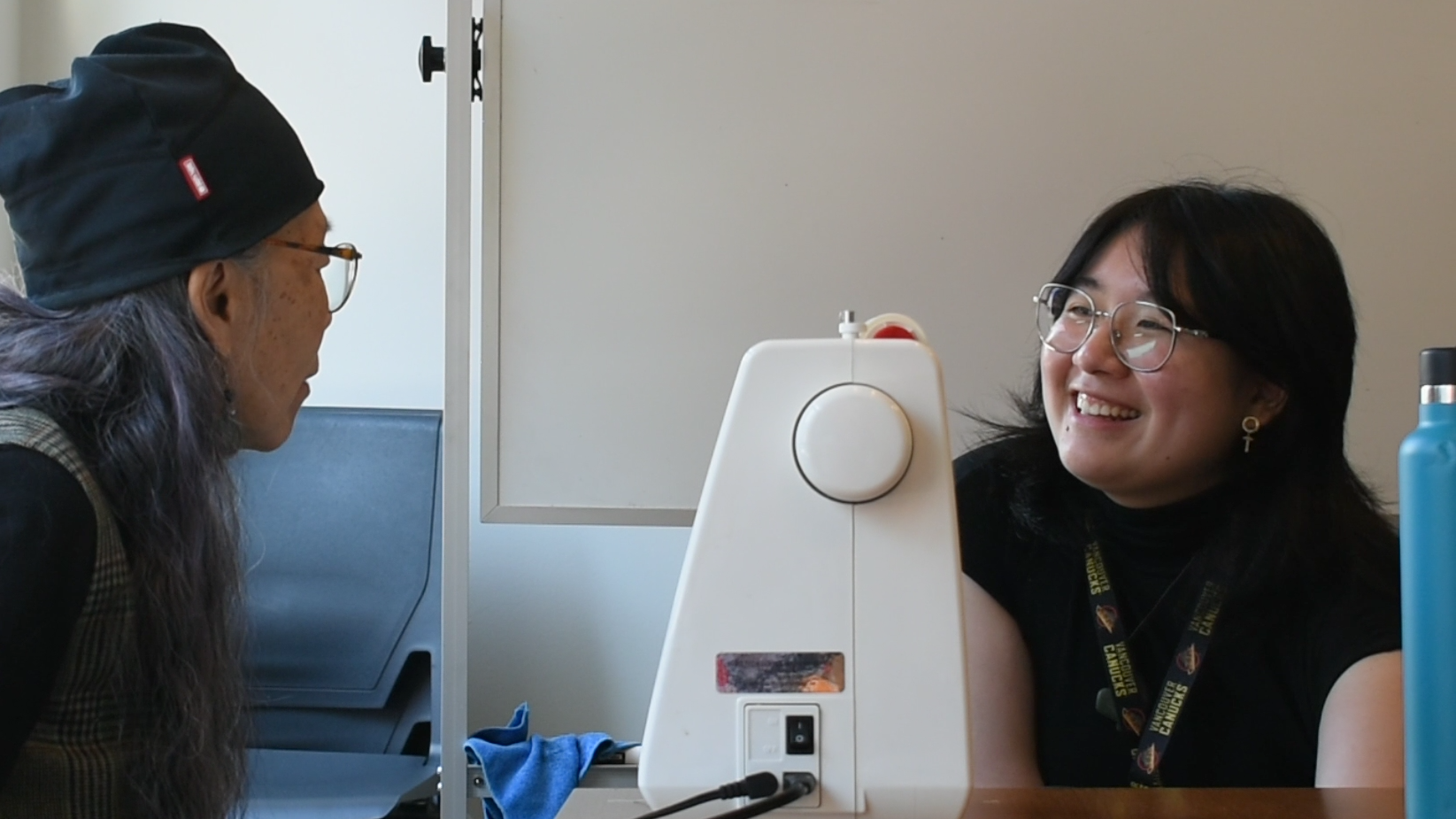Alina McKay describes how her UBC Learning Exchange experience informed her post-graduate work and contributed to the MRAi project.
July 6, 2021
Alina McKay, former graduate research assistant at the UBC Learning Exchange.
Name: Alina McKay
Current employer: UBC
Current job title: Postdoctoral fellow
UBC Learning Exchange role(s): Graduate Research Assistant, 2013-15, 2016-17
UBC Learning Exchange program: Making Research Accessible initiative
Home town: Seaforth, Ontario
Current location: Squamish, British Columbia
Faculty: Medicine, School of Population and Public Health (for PhD)
Research topic: Long-term housing and service needs of people with a history of homelessness
-
How did you hear about or get involved with the UBC Learning Exchange?
In 2013, the academic director at the UBC Learning Exchange, Dr. Angela Towle, was looking for a graduate research assistant (GRA). The GRA would be working on a project that focused on gaining a better understanding of how research could make more of a difference in the Downtown Eastside (DTES). I applied because of my experience as a front-line worker and researcher in the neighbourhood. I had worked in the DTES as a mental health worker since 2009. In 2012, I started my doctorate at UBC’s School of Population and Public Health, where my research focused on the long-term impact of housing and services for DTES residents.
- What did you do at the Learning Exchange?
When I first started, I had the very broad goal of trying to understand why there was a general perception among DTES residents that research was not making a difference. This position was new, so in the beginning it involved getting a better understanding of where this perception was coming from and why. I interviewed a number of service providers to gain a better understanding of how they used research and what the impact of research had been on how they operated or provided services. The organizations I spoke with reported that they were facing intense pressure to simply provide services and did not have the time or resources to explore the research literature. Furthermore, there was a general consensus that when they did partner with researchers, there was little follow-up and findings were not shared with them. There were notable exceptions to this, like the RICHER project; however in many cases organizations felt that partnering with researchers was more of a burden than a gift.
The second thing that I was tasked with doing was to review the research that has been done in the DTES. When I started to dig in, it soon became apparent that there were hundreds of articles that had been written with a focus on the neighbourhood. Eventually this work led to the Making Research Accessible initiative (MRAi), which connected the Learning Exchange with the UBC library. Through the MRAi I became more involved in connecting the work the Learning Exchange was doing back to UBC’s campus communities. In many cases faculty and staff had a limited understanding of the important role that the Learning Exchange plays as a leader in community engagement. Through working with different groups across campus, including the Public Scholars Initiative and iSchool (UBC’s School of Information), the MRAi was able to also connect with researchers and share best practices in research, including open access publishing.
- How did your experience at the Learning Exchange influence your academic and/or career path?
My work at the Learning Exchange has deeply informed my academic work. It made me realize the importance of bringing research findings back to participants. Journal articles play an important role in sharing findings with other academics, but they are quite inaccessible on so many levels. Not only are many articles locked behind publisher paywalls (i.e. you have to pay to access them), academic articles are also written in a way that can be hard to understand. One of the chapters in my dissertation focused on the need for open access (i.e. articles that can be accessed without a fee) using the example of DTES research. In my review of DTES research published between 2010 and 2018 I found that 60 per cent of the articles were locked behind publisher paywalls. I also included plain-language infographic summaries for each of my thesis chapters and shared them with my research participants.
I’m currently working on a Mitacs-funded study with the BC Society of Transition Houses. My work with the Learning Exchange has informed how I present information to the organization and its stakeholders. It also guides how I do research and is influenced by the amazing work of groups like the DTES Community Research Ethics Workshops (CREW) that I connected with through the Learning Exchange.
- How do you think the Learning Exchange was influenced by your involvement? / What unique perspectives do you think you brought?
I’m happy to report that the work that was started with the MRAi has evolved into the Downtown Eastside Research Access Portal. It’s always exciting to see that the Learning Exchange has been able to maintain and grow connections in the community and across campus that I was involved in initiating. This is the true beauty of working with the Learning Exchange—through a committed and engaged core staff, they are able to apply student passions in ways that meet the needs of the communities they work with.
Want to explore more student learning opportunities at the UBC Learning Exchange? Learn more here.
Related stories

EVENT: Knowledge We Share

Student Profile: ‘You can get lost in theories without real-world applications’

Report Identifies Three Immediate Actions to Respond to Climate Change